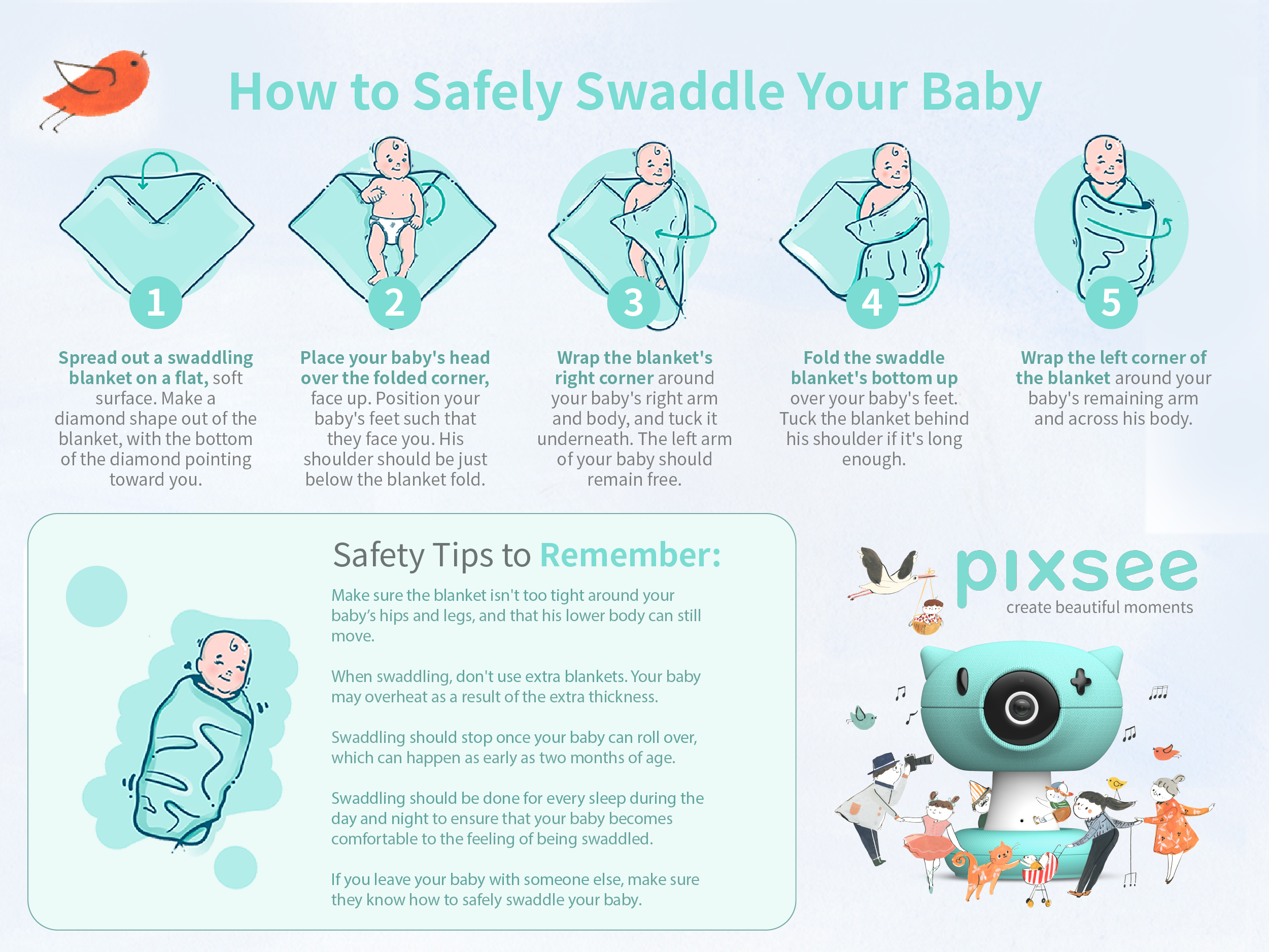The first time your baby cries uncontrollably, your heart sinks. You're a new parent and you have no idea what's going on. Is this normal? Is my baby sick? So you do what any other person in this position would do, you Google. More than likely, one of the first things that pop up is colic.
There are many myths about colic, but in reality, it is not a disease or ailment. Colic is the name given to the intense crying that some infants will go through for hours at a time. What makes colic stand out is that the crying isn't easily explained and they do not have any other signs of illness. Although this article doesn't cover every possible cause of colic, here are some tips for identifying if your baby does have it - especially if you're at your wits' end with the crying.
What are the symptoms of colic?
Crying is very normal and even an expected behavior for babies. Colic is much different and refers to when an infant cries for more than three hours per day, but isn't truly hungry or in pain. This unexplained crying needs to occur for more than three hours each day, at least 3 days per week, for more than 3 weeks to be considered colic.
What causes colic in babies?
Doctors say there is no way of knowing what causes colic, but they believe that it may be due to an immature digestive system or just discomfort. Some colic symptoms include stomach pain, excessive gas, wind, and spitting up (known as projectile vomiting). Colic is not just an annoyance for the parents; it can also cause weight loss, interrupted sleep cycles, and decreased milk production in breastfeeding mothers.
Is colic in babies dangerous?
No, even though excessive crying can be quite concerning, colic is neither dangerous nor harmful. Experts agree that colic has no long-term effects and an infant with colic will gain weight and feed normally. Once again, colic rarely lasts over 3 months so it won't be long before your baby outgrows this phase.
How to soothe a baby with colic?
Parents often feel at their wit's end when their baby cries for hours on end, but there are ways to help your baby calm down. The first thing you should do is try and figure out what the problem might be. Is it hunger? A cold or fever? Or perhaps they're too warm?
If you can't pinpoint the cause, here are a few strategies to try:
Swaddle Your Baby
Swaddling has been used for thousands of years to help calm fussy babies. It is believed that by wrapping your baby snuggly with a soft cloth it can remind them of the safety they felt in the womb. Not sure how to swaddle your baby? You can follow our step-by-step directions for how to swaddle a baby safely.

Play White Noise
Much like how swaddling can remind a baby of the womb, playing white noise or a heartbeat sound can have a similar calming effect. The steady hum of a fan or a white noise machine can also be soothing. Your Pixsee smart baby monitor has a smart music box for playing calming music, white noise, and the ability to play pre-recorded lullabies of you singing. All of these can be comforting during a crying spell.
Swing or Cradle Your Baby
Try swaying back and forth while you hold your baby, or find other ways to gently rock her. Some babies are calmed by a swing, others find a light bouncing motion to be soothing. If that's not enough, you can also give your baby a pacifier while being rocked. Many babies are calmed by sucking, and a pacifier can satisfy this need between feedings.
Change Their Environment
When a baby is distraught it can be hard for them to calm down without a significant change to their environment. The simplest way is by changing their position, for example laying them down if they've been sitting up. If that's not enough you can also move them to a dark room if they've been in the light or vice versa. If they've been surrounded by silence in their crib, perhaps move them into the living room with the TV playing.
Go For a Ride
While this strategy isn't ideal at 3 am when all you want to do is sleep, for some babies, it works like a charm. The snugness of a car seat combined with the motion and humming noise of a car ride offers a one-two dose of comfort that often lulls baby into a deep slumber. When all else fails, you might want to give this strategy a try.
Taking Care of Yourself and Finding Support

As a new parent, hearing your baby cry for hours coupled with sleep-less nights can be overwhelming. It's completely normal to feel exhausted, frustrated, and helpless. Please know you're not alone and these tough times won't last for long.
To help you cope, make self-care a priority and never hesitate to ask for help. If you find yourself getting tense or angry as your baby cries, try breathing deeply to help yourself relax. If that's not enough, lay your baby down in a safe place and go into another room for 10 or 15 minutes.
During this time you can lie down, listen to calming music, meditate, watch a motivational video, or do whatever feels best to calm yourself. When you feel more relaxed, you can go back to tending to your baby.
If you have friends or family members nearby, you can also ask them to relieve you at times so you can go for a walk outside, take a nap, or even read a book. Remember, self-care isn't selfish! If anything, protecting your mental health so you can be calm and attentive is the very best thing you can do for your baby.
Need a helping hand decoding your baby's cries? Our Pixsee smart baby monitor with a built-in cry decoder can give you peace of mind and help you understand your baby's different types of cries. Visit our Pixsee Shop and Amazon online store to learn more.



.png)



